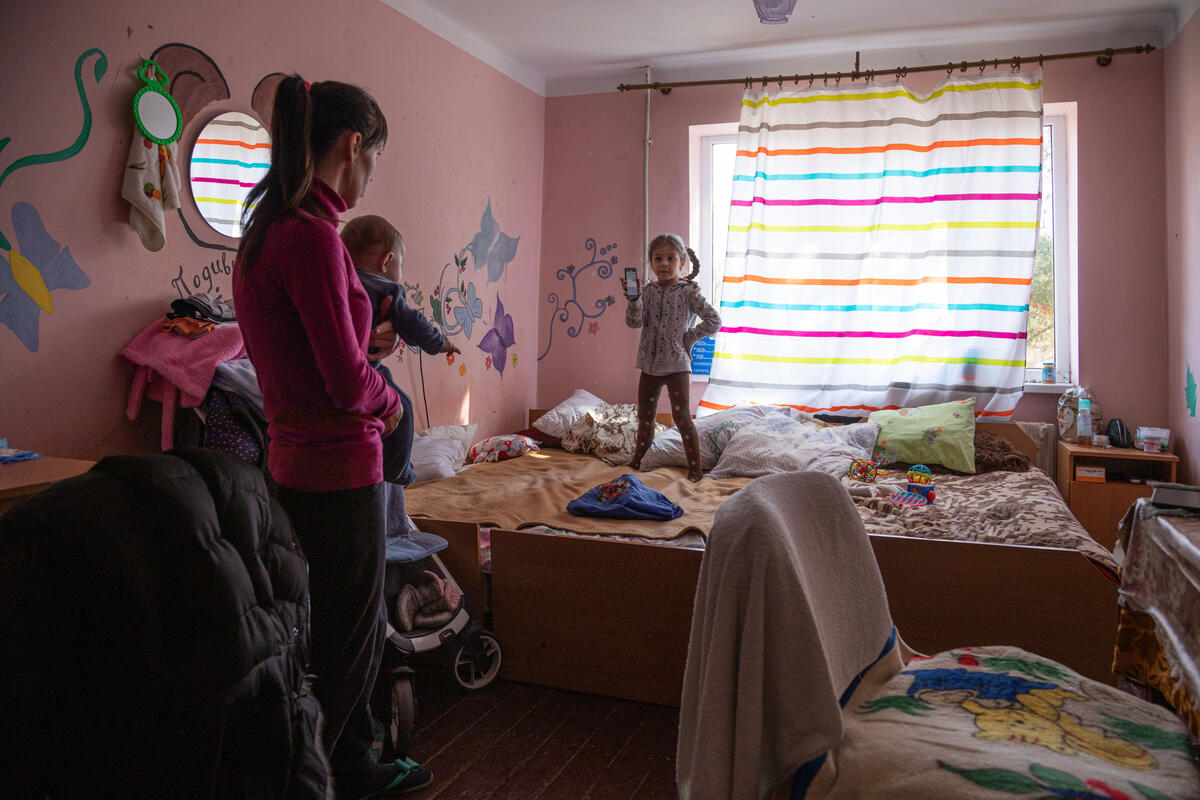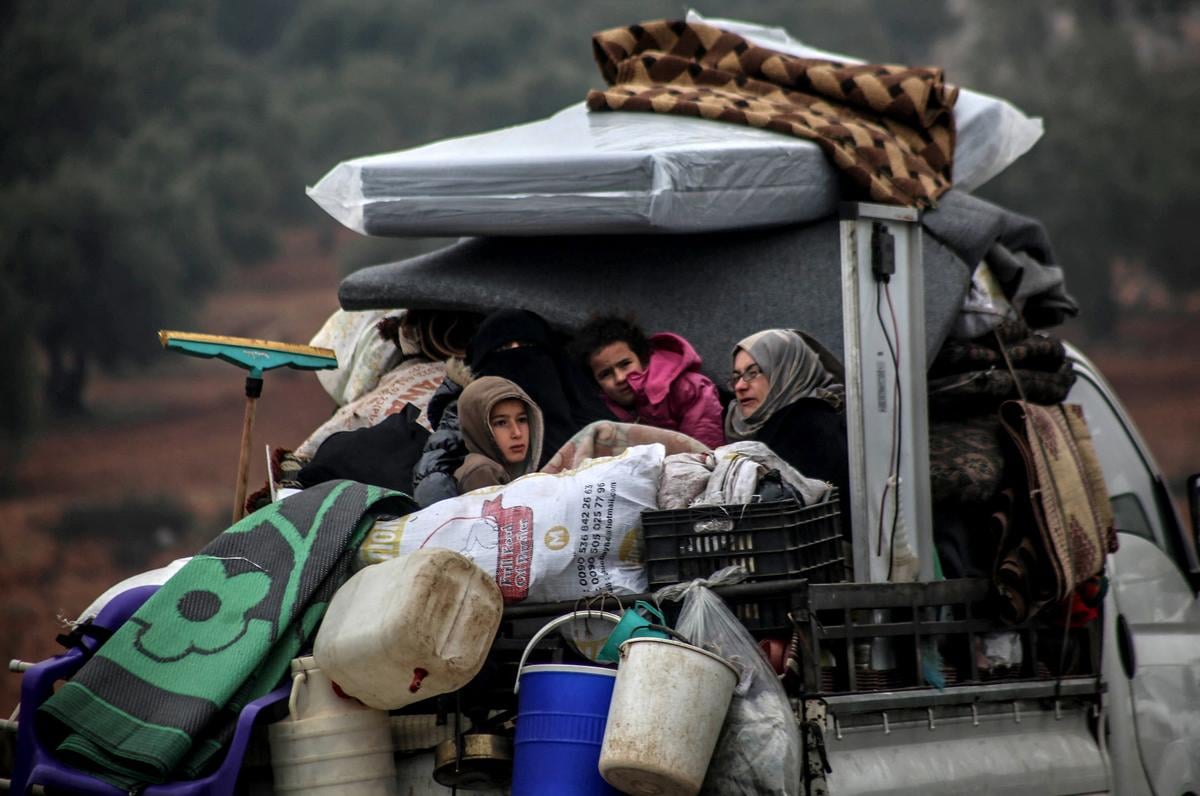Civil society group hailed for supporting displaced people in remote parts of Myanmar
Big smiles greet Naw Bway Khu, 54, as she arrives at the Metta May May Shelter for People Living with HIV/AIDS in Lashio, the largest town in Myanmar’s northern Shan State.
Women and children here know her as “Naw Snow” (Snow being the English translation of Bway and Naw an honourific used by people of Karen ethnicity in Myanmar), the leader and founder of the organization that runs this peaceful refuge.
A trained nurse with a friendly demeanour, she acquired the nickname nearly two decades ago when she set up Meikswe Myanmar – meaning “Friends of Myanmar” – with the initial aim of providing antiretroviral therapy and places of refuge for women and children living with HIV/AIDS.
After enduring years of domestic violence during her marriage, Naw Bway Khu wanted to support women in similar situations. Following her husband’s death in 2002, she spent two years working for an international NGO that cared for people living with HIV/AIDS before starting Meikswe Myanmar. Initially she accommodated women in her own home before establishing the centre in Lashio, and later an orphanage.
“I was freed from my previous life [with my husband] and wanted to help women who were [HIV] positive,” she recalls, adding that she felt fortunate to have escaped contracting HIV from her husband. “I often brought them into my home, accepted them and shared with them what I ate. I wanted them to live a long life and fulfil their dreams.”
"Meikswe's work is all about addressing gaps."
As the organization started to care for a growing number of patients in rural and isolated communities, Naw Bway Khu noticed that many villages lacked access to basic services such as education and health care. She gradually expanded Meikswe’s programming to offer psychosocial support, education and income-generating activities.
“Meikswe’s work is all about addressing gaps,” she explains. “Depending on the needs we come across, we expand our activities and geographical reach step-by-step.”
In 2015, decades of armed conflict in northern Shan State sharply escalated, displacing tens of thousands. While humanitarian aid reached those who made it to camps for internally displaced people, Naw Bway Khu noted that those who sought safety in villages received little to no assistance. “Those in host communities were forgotten,” she says.
As the strain intensified, Meikswe used funds pooled from staff, their families, friends and relatives to mount an emergency response, distributing food and basic household items to displaced people sheltering in villages. Naw Bway Khu also advocated for more international aid to be allocated to host communities supporting the displaced.
Today, Meikswe implements a range of activities to support internally displaced people, their host communities and other vulnerable groups in close to 300 locations across six regions and states – from Rakhine State in the west of the country to Shan State in the north, as well as Kayin State in the south-east.
For its dedication to supporting internally displaced people, even in the most hard-to-reach areas, Meikswe has been named the Asia-Pacific Regional Winner of the 2022 UNHCR Nansen Refugee Award, a prize awarded annually by UNHCR, the UN Refugee Agency, to honour those who have gone to extraordinary lengths to help forcibly displaced or stateless people.
With a team of 77 staff members drawn from a variety of backgrounds and ethnic groups, Meikswe’s activities directly benefited some 25,000 people in 2021. This was despite the many logistical, financial and security challenges posed by the COVID-19 pandemic and the military takeover that took place in February of that year.
“All of our staff have to follow four values: to provide services for marginalized people, respect all races and religions, treat all fairly, and prioritize the needs of children and women,” Naw Bway Khu says.
She attributes Meikswe’s success in delivering aid to communities cut off from other assistance to her staff. “We do things from the heart,” she says. “No matter how difficult or challenging it is, we are able to work because we have already received the love and trust of the community.”
Besides its dedicated staff, Meikswe’s achievements stem from Naw Bway Khu’s determination to empower displaced and conflict-affected communities so they are eventually able to help themselves.
“We cannot support them forever,” she says. “That is why we also provide technical support, so they can be strong enough on their own.”
At the Namma Bawda village in Shan State’s Lashio Township, a group of 10 displaced women and 11 villagers are part of a Meikswe-supported sewing project that generates an income for their families. The women eagerly show Naw Bway Khu the fabrics they work with.
“I think it is very good of Meikswe to support us like this,” says Noe Lar Sheh, a displaced woman living in the village. “We've never experienced anything like it before.”
"Meikswe is like a big shady tree, supporting organizations like us."
Meikswe’s empowerment initiatives also extend to its support to local community-based and civil society organizations that are often the first responders during times of crisis.
Recognizing the need for communities to be able to quickly respond to arrivals of displaced people, the organization trains them on how to carry out a basic humanitarian response. It also acts as a bridge between them and the international organizations that can provide much-needed resources.
For the Otamaung Association, a civil society organization operating in Shan State’s Kyaukme Township, Meikswe’s trainings have been invaluable. First set up to provide health support to people from highland areas, the association has now expanded to provide emergency assistance to those displaced by conflict.
“There is a Myanmar proverb that says one sturdy tree can support 10,000 birds. Meikswe is like a big shady tree, supporting organizations like us to have the confidence and capacity to carry out our work,” says Mai Ye Win Aung, the General Secretary of the Otamaung Association.
Naw Bway Khu is determined to keep expanding Meikswe’s reach so they can assist more communities. “We will continue to work to achieve the rights that every human being should have,” she says. “Meikswe’s logo shows a small boat with a dove on it. I intend to help those on our boat as much as we can. We will help them find peace.”



















